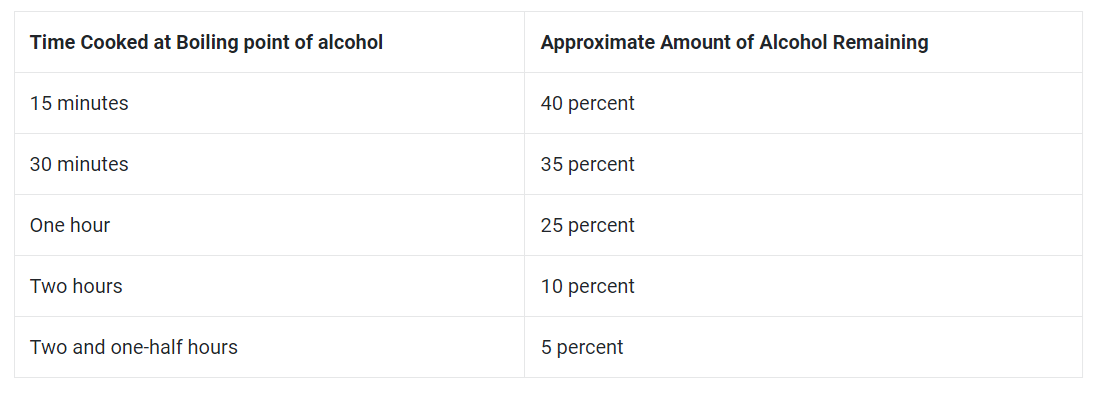Does Alcohol Really Cook Out?
Hi there, welcome to In The Kitchen! Today I want to talk about a common misconception that many people have when it comes to cooking with alcohol. You know, when you add some wine, beer, or liquor to your favorite dish and think that all the alcohol will just evaporate and leave behind only the flavor. Well, I hate to break it to you, but that's not exactly how it works.
According to a study by the U.S. Department of Agriculture, the amount of alcohol that remains in your food after cooking depends on several factors, such as the cooking time, temperature, method, and other ingredients. The study found that after cooking, the alcohol content can range from 4% to 95%, depending on how you prepare your dish. Here's a table that shows some examples:
As you can see, it takes a long time to get rid of most of the alcohol in your food, and even then, some traces may still remain. So what does this mean for you? Well, if you're someone who doesn't drink for personal, religious, health, or other reasons, you may want to avoid dishes that contain alcohol or use substitutes instead. For example, you can use stock, vinegar, lemon juice, or water instead of wine in sauces and stews. You can also look for recipes that don't require alcohol at all.
On the other hand, if you're someone who enjoys a drink now and then, you don't have to worry too much about getting drunk from your food. The amount of alcohol that you consume from a typical serving of a dish cooked with alcohol is usually very small and unlikely to affect you significantly. However, you should still be mindful of how much alcohol you're adding to your food and how it may interact with any medications or health conditions that you have.
The bottom line is: cooking with alcohol is not as simple as it seems. There are many factors that affect how much alcohol remains in your food after cooking, and you should be aware of them before you decide to add some booze to your dish. Remember, moderation is key, and always cook responsibly!



